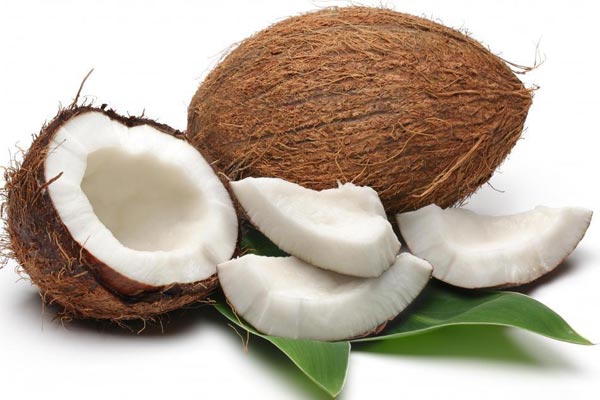Can Dogs Eat Eggs?(raw, Boiled or Scrambled). Doctors Explain
Yes, eggs are good for dogs. Every part of the egg from the shell to the yolk is beneficial to the dog and should be given moderately. If given in excess, it may cause health problems.
Eggs are an excellent source of a digestible protein boost. Eggs can help settle dogs stomach upset. You can serve eggs scrambled but with the little number of fats, in raw form or boiled.
You can feed large dog eggs up to 3 to 4 days in a week and for a small dog 1 or 2 small eggs per week.
It is not healthy to feed your dog eggs every day. Feeding your dog more than one egg a day is also not advisable.
An example of a small egg is a quail egg. One large egg Yolk contains about 2.7 grams of protein, 270 milligrams of cholesterol and 4.51 grams of fat. One egg is enough for a day.
Can dogs eat raw Eggs
Yes, dogs can eat fresh eggs. If you are going to feed your dog raw eggs, you can break them on your dog’s food and stir it in or crush the shell up and sprinkle over your dog’s healthy diet for a calcium boost.
You can also feed it whole without crushing the egg. It’s a misconception that raw eggs can decrease the carbon dioxide levels in the dog’s tummy.
Puppies and senior dogs are more prone to digestive issues when fed raw eggs.
Dogs have a short and acidic digestive tract
Salmonella
Feeding raw or undercooked eggs to your dogs can expose your dog to a risk of getting a bacterial infection such as salmonella even if the egg is washed clean.
People who feed their dog’s raw eggs are also at high risk of contracting salmonella.
Dogs with healthy immune systems are at a lower risk of salmonella infections as compared to those with weak immune systems. Cooking eggs reduces this risk.
However, some veterinarians say that cooking eggs make them lose nutrients.
You can also feed raw eggs as long as you look for organic eggs from healthy free-range hens. Store them in a calm and dry place.
Apart from salmonella, there is also E Coli which your dog can be exposed to. Fully known as Escherichia coli affects dogs in the lower intestines.
The presence of E Coli can be beneficial but can also cause infections in newborn puppies.
Biotin Deficiency
Raw egg can also cause biotin deficiency which is also known as Vitamin H or B7 deficiency. It, however, takes a lot of eggs to create a weakness.
Biotin is a B complex vitamin. Lack of biotin leads to poor digestion, inhibits cell growth, it causes loss of skin and poor coat condition.
Avidin found in raw egg whites creates biotin deficiency. Eggs yolks contain high levels of biotin.
So you should feed your dog with whole fresh eggs since the yolk will help offset the effect of avidin in the egg white.
Egg Yolk also contain Omega 3 fats which help improve your dog’s coat texture and make it look lustrous.
Another side effect is gas.
Benefits of cooking Eggs
Cooking makes the eggs easily digestible. Eggs are best served cooked, boiled and plain. Helping every day means without oil, butter, salt, pepper, onions, spices or other possibly harmful additives.
The best and easiest way to prepare the egg is by boiling it as this is not messy and requires no additives.
Healthy Nutrients in Eggs
Eggs are high in amino acids and essential fatty acids, riboflavin, fat-soluble vitamins like Vitamin A and B12, folate, iron, thiamine, linoleic acid, and selenium.
These nutrients are healthy for the dog’s body, skin, strengthens the hair on the coat and repairs worn-out bone tissues.
These nutrients are right if they are given to your dog in moderation. Eggs also contain iodine that ensures a healthy thyroid.
With proper nutrition for your dogs, they are going to be in good physical shape, hearty, stronger and cheerful.
Digestive Upset and Allergies for Dogs
Eggs can also cause minor allergic reactions and gastrointestinal upset. Eggs contain enzymes inhibitors that may cause digestion problems.
Anaphylaxis is a rare potentially life-threatening condition which occurs as a result of food allergies.
Often, dogs that are allergic egg yolks are also allergic to shells and whites.
The sign that your dog has an allergic reaction includes:
- sneezing
- coughing
- wheezing
- chronic ear infection
- regular gas
- face rubbing
- hives
- obsessive licking
- paw biting
- skin rashes
- skin infections
- bald patches
- swelling or having difficulty breathing.
According to Dr. Justin Shmalberg, allergies affect the dog’s digestive and respiratory tract.
An allergic reaction occurs when the respiratory system responds aggressively to a potential threat. Keep in mind that when dealing with eggs moderation is the key.
If your dog has allergies, it is good to feed it quail or duck eggs for a while until it gets used to eggs.
Chicken eggs contain a high level of omega-six fatty acids that may increase inflammation in the body tissues.
Effects of Cholesterol
The cholesterol contained in the egg yolk helps prevent having a flaky dry skin instead of giving it a gleaming skin and coat.
Eggs contain a high level of cholesterol, that is about 1.6 grams of saturated fat and 200 milligrams of cholesterol and if overfed to your dog it can lead to stomach upsets and in the long term may cause weight gains and other health problems.
So that means your dog shouldn’t take too much fat.
Nutritional Value of Egg Shells
Eggs shells are an excellent source of calcium and phosphorus according to Dr. Mercola.
The best shells come from fresh organic eggs which are free from wax or any other chemicals present.
You can boil the eggshells allowing them to dry and also to disinfect them.
You can sprinkle them into your dog’s food as a fine powder after grinding it, or you could serve it whole and let the dog crack it open. The eggs shells should not replace the meat and bones.
Calcium is known to help in blood coagulation, hormone distribution, muscular movement, nerve impulse transmission, and intracellular communication.
The eggshell also does contain Strontium which is known to help in the development of healthy bones.
There is also magnesium which is essential for bones, the regulation of blood pressure and keeps the heartbeat steady. One eggshell provides enough nutrients for the whole day.
Puppy Nutrition
For pups, the best way to serve the egg is by poaching it or boiling it says Dr. Nathan Myrhvold.
This is because scrambling requires additives like spices that will give the puppy a digestive upset.
Eggs also give the puppy a protein boost, but it should be fed in minimal amounts.
Poaching does not require any additives. It is prepared by heating some water to almost boiling then crack the egg into the water and cook for about four minutes.
This helps retain the nutrients and reduce the fat and calorie levels.
Poaching is faster than boiling, but boiled eggs are more accessible to store. Cooking the egg will reduce the number of nutrients, but it’s the best way to feed your puppy with eggs.
Healthy Vitamins in the Egg Yolk
It is the most nutritious part of the egg. It’s safe for dogs to eat the egg yolk.
Eggs Contain Vitamin D
Another health benefit of eggs for puppies is that they contain Vitamin D Says Dr. Holick.. which is good for healthy teeth and healthy bones.
The egg contains vitamins such as Vitamin D which helps in the growth of healthy bones, nerve and muscle control.
This is by allowing more absorption of Calcium. It also regulates phosphorous and calcium balance.
It is a fat-soluble vitamin. This means it is stored in the fatty tissues of the body and liver. However, Vitamin D in large amount can cause health issues.
It also contains Vitamin E.
Vitamin E is a fat-soluble nutrient that supports the development of strong dog muscles and the circulatory system.
This vitamin is in charge of the proper formation of the red blood cells. The red blood cells are responsible for protecting the body and bone tissues.
It is also useful for the dog’s skin and coat. It can help reduce the flakiness of the layer and plays a part in boosting the immune system. Eggs are rich in Vitamin E. Puppies requires more vitamin E for growth.
It contains Vitamin A
It promotes healthy liver, lungs, and kidney for dogs. Vitamin A is responsible for good eyesight and vision for your dogs.
It keeps the body’s mucous membrane moist and supports healthy nerves and muscles for the dog. It supports the puppy’s growth.
Vitamin K
According to Dr. Steven Lin, eggs are good sources of Vitamin K is also contained in the egg and helps in the blood clotting mechanism by activating calcium-binding properties of proteins. Vitamin K is necessary for proper liver and blood health.
It is found in the egg yolks. It assists calcium to strengthen the dog’s bones and teeth. It helps in preventing diseases severally. Vitamin K deficiencies occur as a result of liver failure.
There is also choline a very vital vitamin supplement, but it is not well known. Choline is used in treating cognitive disorders and is part of therapy for dogs with seizures or epilepsy. It is moderately effective.
Use eggs as a Dog Training Reward
Treats help in motivating the dog. According to Dr. Sophia Yin, you can use eggs as a homemade treat when training your dogs.
For example, if you are teaching your dog to sit, you can occasionally toss small pieces of eggs as a reward for obeying your commands.
Boiled eggs are advisable because it is easier to separate the egg white from the yolk. Avoid raw eggs. You can also use hard-boiled, scrambled or poached eggs.
You may toss the yolk as a reward to your dog during training sessions.
Fresh eggs have a more nutritional value than fried eggs
When you cook eggs, they do lose nutrients but not in high quantities. Raw eggs can cause health problems with dogs that have a weak immune system.
You should, therefore, try feeding your dog fresh eggs for an extended period, or you can boil your eggshells if you are worried about salmonella poisoning.
Plain fried eggs are also suitable for dogs
You should not prepare it with any additives for this may be harmful. If your dog is overweight, you should avoid unnecessary fats. Just boil the egg for the dog.
The best types of berries are organic and come from hens that are fed from a natural diet of plants, seeds and small animals like worms and bugs. These eggs taste better and are more abundant in nutrients.
Avoid eggs with a chemical to reduce the chances of contamination and infection
Eggs shells, egg white, and egg yolk are all essential and beneficial for a balanced diet to the dogs.
It is essential to wash the eggs all the time before feeding them to your dogs
If you notice that your dog is not eating or it has stomach upset after eating, then stop feeding it with eggs. Do not rely entirely on eggs as food for your dog.
It is essential to include other foods like meat and raw bones
According to Dr. Ian Billinghurst, Toast with eggs is a perfect breakfast for your dog. Make sure the toast is also given in moderation, that is two or three times a week. Avoid burning the toast.
Diabetic dogs can also take eggs
According to Dr. Bruyette, It is advisable to give them scrambled or hard-boiled eggs but not with too much oil and salt since this can lead to the dog having health complications.
Eggs can cause diarrhea in dogs
This is as a result of salmonella infection. Scrambled eggs can be used to treat a dog’s diarrhea. Too many eggs can cause vomiting and diarrhea in dogs.
In conclusion, eggs are perfect for your dog. However, you will need to control the number of eggs you feed it on a weekly or daily basis. You can give your dog raw, cooked or boiled eggs.






